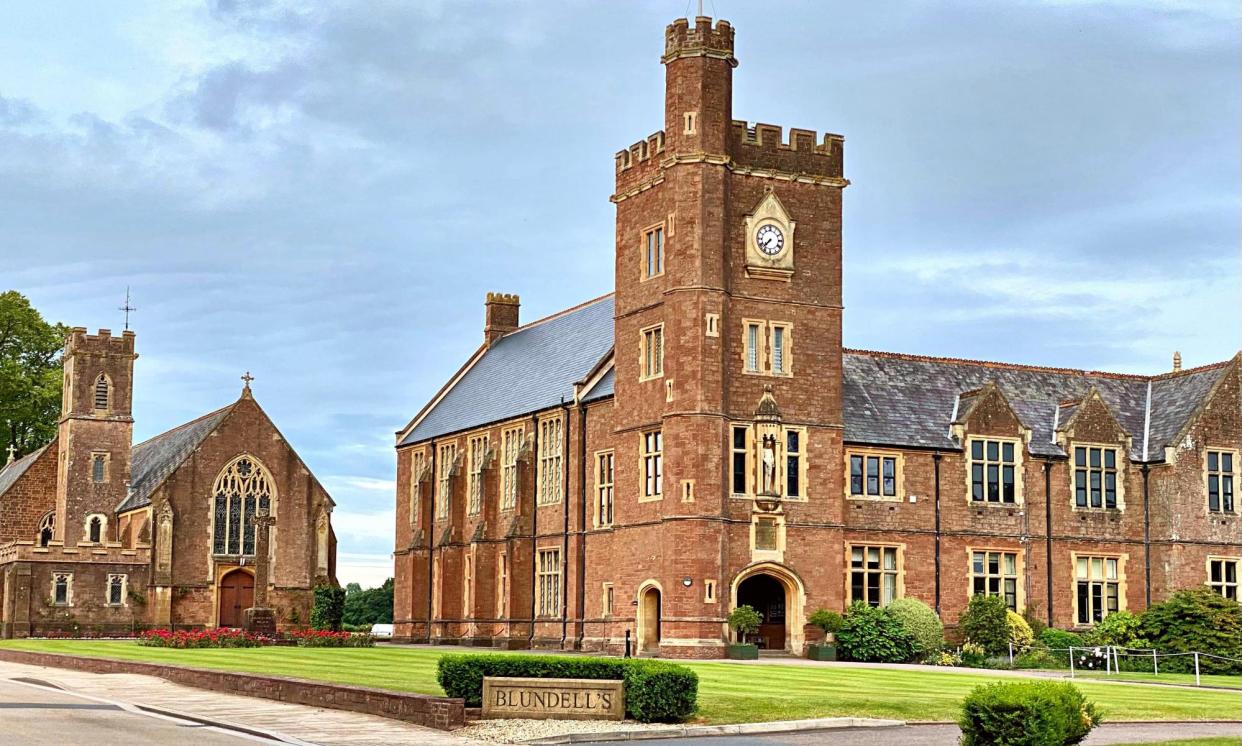Boy guilty of attempted murders in Devon private school hammer attack

A teenager who battered two fellow boarding school pupils with hammers as they slept and attacked a housemaster when he went to investigate the commotion has been found guilty of three attempted murders.
The boy, who was 16 at the time, accepted he carried out the assaults at Blundell’s school in Devon but claimed he was sleepwalking and so could not be held criminally responsible.
The jury found the defendant guilty after 40 hours of deliberation. The trial judge, Mrs Justice Cutts, said she would adjourn sentencing for the preparation of pre-sentence reports, including a psychiatric report, and would pass sentence on 18 October.
She said: “Inquiries have been made to find somebody who would be able to write a report. It has not been straightforward because of the defendant’s age.”
The prosecution said the teenager carried out the attacks in a “killing rage” after researching methods of murder and what happened to serial killers. It said the boy, now 17, had been watching a horror show and listening to dance music shortly before launching the assaults.
During an eight-week trial at Exeter crown court, a troubling picture emerged of aspects of life at the 400-year-old school, where yearly fees for boarders are more than £40,000. It was revealed the attacker was not the only boy who kept potential weapons. A staff member had confiscated hammers from pupils, including from the attacker.
Devon and Cornwall police said in 2018 it was contacted about allegations of bullying, unconnected to the case. The force said there was “initial engagement” but the matter was left in the hands of the school.
It was also claimed that while boarders were supposed to hand over their phones at bed time, they often kept “burners” hidden and the attacker was plugged into media for many hours at a time deep into the night.
Jurors heard that in the months before the attack, the boy had searched for information about child serial killers, whether young people could be sent to jail and if serial killers were respected in prison.
Exeter crown court was told that the teenager fell out with one of his victims when he thought he had laughed at him as he worked on a school project and began treating him “horribly”.
The evening of the attack began peacefully. An hour of games was organised in the summer sunshine, followed by ice-cream. But in the early hours of 9 June the boy attacked two pupils and the housemaster, Henry Roffe-Silvester, when he woke and went to investigate. “It was a bloodbath,” said one child; “a scene from a horror movie”, reported one staff member.
As the emergency services arrived, the teenager told another pupil he had been “dreaming”.
The boy’s barrister, Kerim Fuad KC, described the defendant as a “sleep-deprived super-stressed wreck”. He said he had been under pressure because of exams and he was allegedly being blackmailed by an adult via the internet.
Giving evidence, the boy said he recalled going to sleep on the night of the attack and his next memory was “the room was covered in blood”. He told the court he had the hammers for protection from the zombie apocalypse. He made it clear he believed the apocalypse was a reality, not schoolboy fantasy.
The school’s head, Bart Wielenga, said: “I hope that this outcome will bring a degree of closure for all those involved. I remain tremendously proud of our school community and its response to circumstances that have been profoundly shocking and entirely unprecedented.
“No school would ever wish something like this, but the conduct of pupils, staff, parents and the wider Blundell’s community throughout the past year has only been encouraging and reassuring.”
Wielenga said people may have read reports referring to “weapons” but they were tools. “Many items could be used as weapons.”
He added: “We continue to be thankful for the remarkable recovery made by all the victims and those affected by the event. We are mindful that the psychological wounds sometimes take longer to heal than the physical ones.”
The two boys who were attacked suffered skull fractures. Roffe-Silvester suffered six blows to his head.


